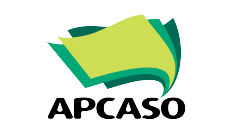
This self-diagnostic tool aims to help community groups, civil society organisations, and key population networks assess their CRG needs in relation to their National Strategic Plans on HIV, TB, or malaria, Global Fund-supported country programmes, funding requests, and their engagements (or the lack of) in Funding Model processes.
Under the current Funding Model, there are different opportunities to promote the inclusion of community-focused, human rights-based, and gender transformative (CRG) programs. However, CRG needs are diverse, ranging from community access to and representation in Funding Model processes and having key population or gender-disaggregated data or strategic information to mobilisation capacities and technical skills to contribute to Concept Note development. These CRG issues need to be unpacked in relation to these processes so that community groups, civil society organisations, and key population networks are able to prioritise their needs and identify possible sources of support to address those needs.
How to use this tool:
- This tool is best answered through small group discussions comprised of community groups, civil society organisations, and key population networks that have taken part of their Global Fund processes or are involved in or familiar with Global Fund-supported country programmes.
- The questions in the tool have to be answered collectively. Gouging inclusivity in processes, for instance, requires not just a factual scoping of the stakeholders that have been included in or excluded from the process, it also necessitates looking into the extent and depth of participation, which is best measured through a qualitative and consensual approach.
- Familiarity with GF processes and structures, NSPs, and country programmes is crucial. It is recommended that you engage partners (UNAIDS, WHO, CCM secretariat, regional organisations, etc.) that can provide technical information when needed.
- To avoid confusion, responses to the tool must be recorded or documented separately, based on the grant or based on the diseases (for example, HIV grant, HIV and TB grant, multi-country grant, etc.). Although sometimes overlapping, the key populations and civil society stakeholders of the the three diseases are distinct; their involvement and engagement in country programmes or Global Fund processes are most likely different. To understand the gaps and identify solutions, it is necessary to disaggregate information about their CRG issues, needs, and priorities.
- The results of the Needs Assessment are a good source of concrete recommendations to promote the inclusion of CRG-related interventions in country programmes. Make sure that you document the outputs properly. It is also important to use this tool with engagements in Global Fund and country processes like Country Dialogues and CCM oversight activities in mind.
- The tool itself is in English. You will need a facilitator and a documenter who can help translate the questions in the tool.
This CRG Needs Assessment Tool (2021 version) is an updated version of the needs assessment tool developed by the APCRG Platform in 2015. This tool is designed to facilitate qualitative and collaborative scoping of different CRG needs from the perspective of community-based, community-led organizations, key population-led organizations, and civil society groups involved in country responses for HIV, TB, and malaria in Asia-Pacific region.
This tool is also available in Bangla, Bahasa Indonesia, Hindi, Khmer, Sinhala, and Vietnamese.

